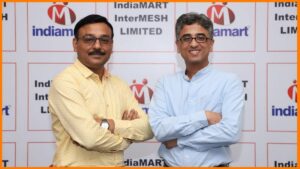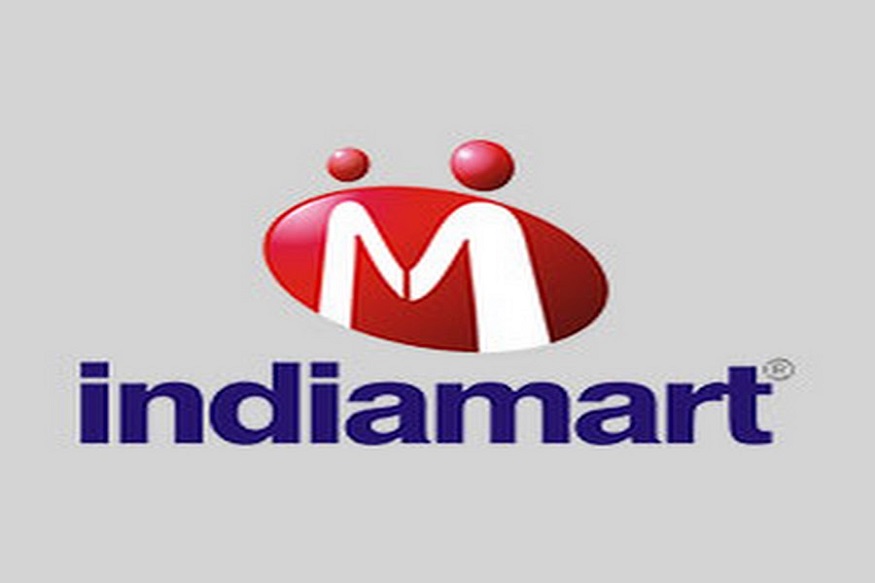IndiaMART is an online B2B marketplace founded in 1996. The headquarters are in Noida, Uttar Pradesh. Dinesh Agrawal and Brijesh Agrawal are the founders of the company.
The portal connects buyers and suppliers directly across the world via business solutions. The article analyses the business model, revenue growth, marketing practices, and competitive strengths of IndiaMART.
IndiaMART came into existence after PM PV Narasimha Rao announced internet connectivity via BSNL. The founders believed that SMEs (small and medium enterprises) would benefit the most from the internet boom. However, there was a shortage of computers and internet infrastructure since the 1980s. Hence, this paved way for IndiaMART to create a website that would help to connect Indian buyers with domestic and international suppliers easily and cost-effectively.
There was limited information about Indian products for international importers. Moreover, understanding the exports is essential for trade. Hence, they created an online directory of Indian exporters with the tagline ‘The Global Gateway to Indian Marketplace’. For five years, they received online inquiries from the US, and faxed them overnight. Later, the next day they used to post their goods. The 1999-2000 dot com bubble brought an internet boom, due to which focus shifted to e-mails and content building. Eventually, there were more suppliers online. People were heavily investing in internet start-ups, hoping that the companies will become lucrative.
The company faced problems due to the 9/11 attacks and global recession in 2008 as exporters flattened out. However, the founders were able to raise $10 million in a Series-A round and introduced value-added features like premium services and catalogues creation.

Business Model of IndiaMART: Buy-Lead Model
IndiaMART is an e-commerce platform which has listed various product categories like machine parts, textiles, medical equipment, automobile parts, chemicals, etc. Moreover, it is primarily for wholesalers, suppliers, and retailers for bulk orders. After the funding rounds, IndiaMART grew ten times faster with a new business model. However, in 2012, they experienced a setback when the Indian economy slowed down. For the first time, the company reported losses. After the loss, the founders and the team came up with changes in their business model, scaled back, and stopped hiring. They switched from lead generation to Buy-Lead generation and found a new product mix.
In the Buy-Lead model, IndiaMART filters the purchasing orders of buyers and shares them with the sellers dealing with similar products or services. In the business model, IndiaMART launched a mobile application, streamlined its websites, leveraged technology, and provided digital and telephonic assistance. They used SMS and e-mails to notify the suppliers regarding the orders and helped suppliers to consume their buy leads.
Business Model of IndiaMART: Subscription-Based Model
IndiaMART fosters buyer-centric transactions. Moreover, they do not charge a single penny as a commission or transaction fee from buyers. It focuses on SMEs with free registrations on the websites and apps. They have a subscription-based model for the suppliers- receive revenue in subscription form at fixed intervals from suppliers. Moreover, they also have paid membership options where one can upgrade their account for better results and facilities.
Firstly, 6.2 million suppliers use a freemium model- basic features are free of cost, and to receive advanced features, one needs to pay extra money. Secondly, silver and gold membership options offer better facilities, contributing 95% of operational revenue. Lastly, the platinum membership provides top-notch services. Some of the offerings are- seven free buy leads every weak, priority listing, a lead management system, online payments, cloud telephony, etc.
In 2014, IndiaMART launched Tolexo, an e-shopping centre for business and industrial goods. But scaling up Tolexo was an upskill task and costly. Later, the founders decided to merge IndiaMART and Tolexo. It is operational to date. It is like Amazon for B2B customers. 33% of the traffic was from tier III and IV cities.
They want the people to perceive the company as functional and not a technology one. They want people to get their jobs done without facing any technological jargon.
Additionally, the company has more than 71 million listed products and services, 6.4 million suppliers, 119 million buyers, and a 60% market share in B2B classified space in India. The focus areas are SMEs, large enterprises, and individuals.
Competitive Strengths
- Firstly, they carry out 100% organic research and have 40% repeat orders.
- Secondly, IndiaMART has a 4.7 rating on Playstore.
- Moreover, they check the efficiency and effectiveness of the suppliers via RFQ selection, AI-based matchmaking, call responsiveness, etc. RFQ is a Request for Quotation. The company collects bids from different suppliers for a particular product or service. It is usually done when there are repetitive quantities or standardized processes. The supplier with the least price gets listed.
- Further, the company has a detailed catalogue, including the listed products and services, prices, product specifications, photos, videos, reviews, etc.
- Lastly, they have a reach of 6.4 million suppliers on board and multi-channel services.
Marketing Campaigns of IndiaMART
- IndiaMART introduced a brand promise- ‘Bada Aasaan Hain’. It signifies the company provides ease by connecting one professional to another. They launched the tagline after a shift in device usage and demographics of users. 75% of the people used the app via mobile phones due to internet penetration. The brand promise is to ensure users that the company will focus on its long-term goal to bring business inclusion cost-effectively via digital adoption.
- The company launched an integrated marketing campaign called ‘Aaram Ki Tune’. It started with a stress-busting contest on various social media handles, and then it created a buzz on televisions and radios through the message ‘Kaam Yahi Banta Hain’. After the huge engagement on social media handles, IndiaMART kept their fans hooked and revealed Irfan Kahn as the brand ambassador. In the ad, Irfan Khan describes the ease of ordering orders from IndiaMART, from large furniture items to small items like shirt buttons.
- ‘India Ki Khoj’ was a TV advertisement campaign starring Irfan Khan. It shows that IndiaMART is a platform that powers the khoj for growth, success, ambitions, and legacy. They aimed to celebrate the spirit of SMEs across the country and summed up as khoj for everything they were looking for in their lives. IndiaMART expresses its thoughts via the advertisement. They connect markets with opportunity and individuals with ambitions.





